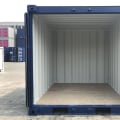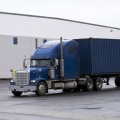An average brokerage commission ranges from 15% to 20%, although the numbers can be much higher than that. This translates into higher costs that fall on the sender. The ability of a traditional middleman to deliver the right truck to the right place at the right price is limited by the number of trucks in your individual Rolodex. Your commission rate will depend on the shipping agent you work with.
Industry standards range from 50 to 70 percent of the gross margins paid to it, while the broker keeps the rest to cover operating expenses, technology and any support services it provides to its freight forwarders. A freight forwarder is not a licensed broker, but is an independent contractor who represents the licensed broker. For example, Landstar is an asset-based broker with a large number of transportation agents working for your company. Because of these requirements, logistics professionals often opt for a less responsible position as independent freight forwarders.
As a freight forwarder, you'll work to connect cargo owners and cargo carriers, organizing logistics transactions to deliver the products that millions of people rely on every day. Most freight brokers are paid with commissions, meaning that the broker earns a percentage of the profits from each transaction they facilitate. As stated above, there are many different factors that can affect a freight forwarder's revenue. On the other hand, working with a smaller-scale, non-asset-based broker can often result in more aggressive profit-sharing compensation programs, as they don't have the enormous overhead of a merchandise broker.
Surety Bonds Direct is here to help you get your BMC-84 freight broker bonus quickly and at an affordable price. A freight forwarder has the same job description as a broker, without the headache of having to deal with the daily operations of the company. Becoming a freight forwarder can be an excellent career choice for those who want a quick and demanding job. The world of merchandise brokerage is very different from a traditional business environment, with a lot of technology and jargon that must be thoroughly understood before committing to a career as a freight forwarder.
In most cases, brokers will look for agents who work independently, without the obligation to pay the agent a base salary.


